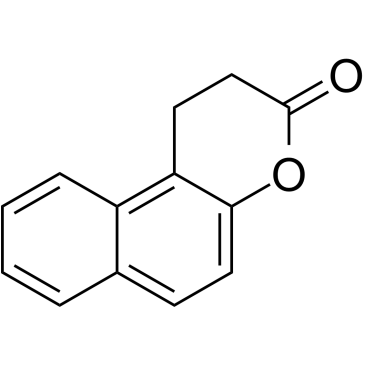Deacetylation of the DNA-binding domain regulates p53-mediated apoptosis.
Hestia S Mellert, Timothy J Stanek, Stephen M Sykes, Frank J Rauscher, David C Schultz, Steven B McMahon
Index: J. Biol. Chem. 286 , 4264-70, (2011)
Full Text: HTML
Abstract
In unstressed cells, the p53 tumor suppressor is highly unstable. DNA damage and other forms of cellular stress rapidly stabilize and activate p53. This process is regulated by a complex array of post-translational modifications that are dynamically deposited onto p53. Recent studies show that these modifications orchestrate p53-mediated processes such as cell cycle arrest and apoptosis. Cancer cells carry inherent genetic damage, but avoid arrest and apoptosis by inactivating p53. Defining the enzymatic machinery that regulates the stress-induced modification of p53 at single-residue resolution is critical to our understanding of the biochemical mechanisms that control this critical tumor suppressor. Specifically, acetylation of p53 at lysine 120, a DNA-binding domain residue mutated in human cancer, is essential for triggering apoptosis. Given the oncogenic properties of deacetylases and the success of deacetylase inhibitors as anticancer agents, we investigated the regulation of Lys(120) deacetylation using pharmacologic and genetic approaches. This analysis revealed that histone deacetylase 1 is predominantly responsible for the deacetylation of Lys(120). Furthermore, treatment with the clinical-grade histone deacetylase inhibitor entinostat enhances Lys(120) acetylation, an event that is mechanistically linked to its apoptotic effect. These data expand our understanding of the mechanisms controlling p53 function and suggest that regulation of p53 modification status at single-residue resolution by targeted therapeutics can selectively alter p53 pathway function. This knowledge may impact the rational application of deacetylase inhibitors in the treatment of human cancer.
Related Compounds
| Structure | Name/CAS No. | Molecular Formula | Articles |
|---|---|---|---|
 |
Splitomicin
CAS:5690-03-9 |
C13H10O2 |
|
SIRT1 decreases Lox-1-mediated foam cell formation in athero...
2010-09-01 [Eur. Heart J. 31 , 2301-9, (2010)] |
|
Synergistic activation of HIV-1 expression by deacetylase in...
2009-01-01 [PLoS ONE 4(6) , e6093, (2009)] |
|
Sirt1 inhibition promotes in vivo arterial thrombosis and ti...
2011-02-01 [Cardiovasc. Res. 89 , 464-72, (2011)] |
|
SIRT1 reduces endothelial activation without affecting vascu...
2010-06-01 [Aging (Albany. NY.) 2 , 353-60, (2010)] |
|
The Sir2 family of protein deacetylases.
2004-01-01 [Annu. Rev. Biochem. 73 , 417-35, (2004)] |